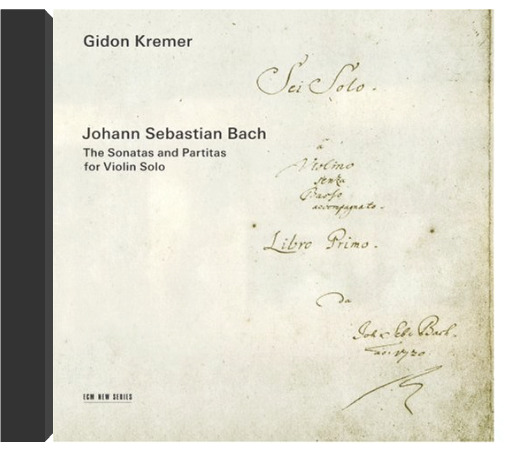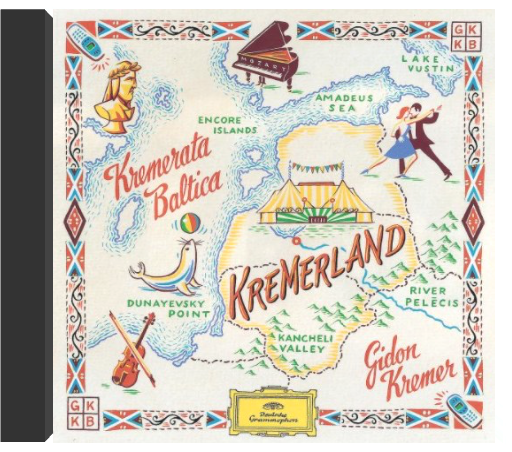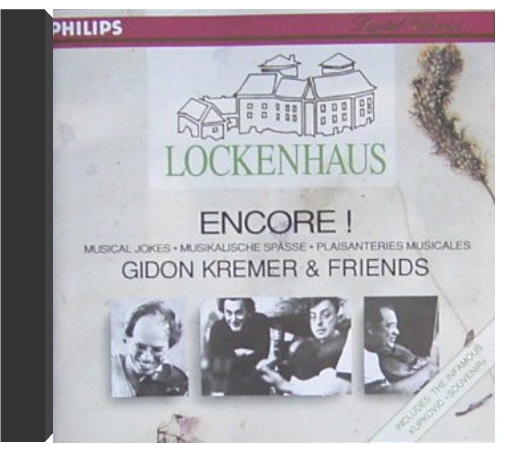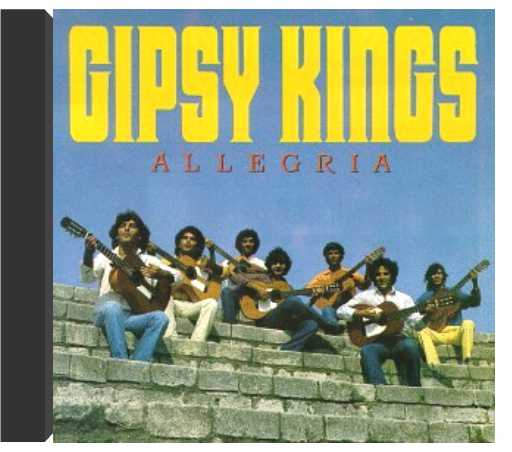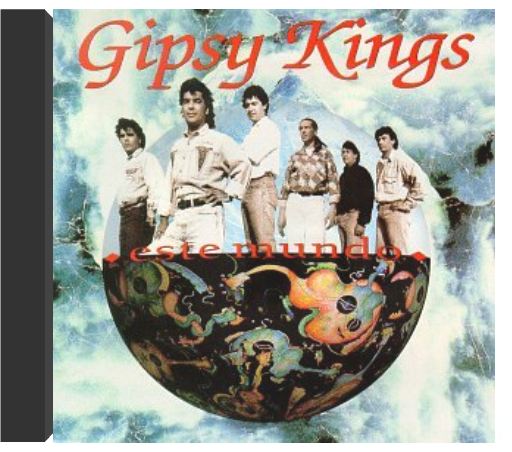 Piazzolla: Maria de Buenos Aires, Tango OperitaGidon Kremer Piazzolla: Maria de Buenos Aires, Tango OperitaGidon Kremer Composed more than 30 years ago, this "little tango opera" remains a work of stunning originality. Indeed, the alchemy achieved here by tango master Astor Piazzolla—whose avant-garde, quasi-symphonic meditations on this vital dance form have achieved renewed popularity—and librettist Horacio Ferrer involves a particular amalgam of music and surrealist poetry that is part cabaret, part smoky Sprechstimme, and ultimately sui generis. Violinist Gidon Kremer and a tight ensemble of colleagues show keen empathy for this symbolist allegory of an ambiguous, archetypal journey of the soul. —Thomas May 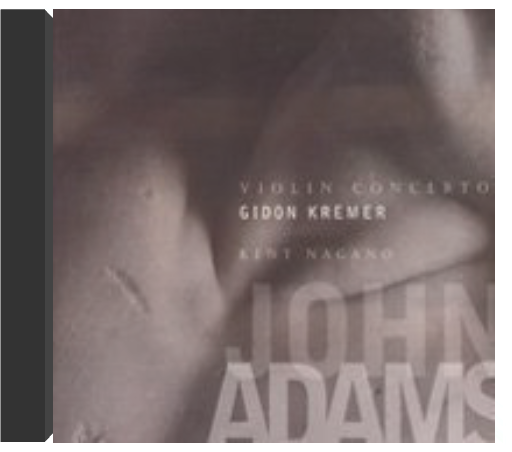 Adams: Violin Concerto/Shaker LoopsGidon Kremer, Kent Nagano Adams: Violin Concerto/Shaker LoopsGidon Kremer, Kent Nagano Turned loose on John Adams's surprisingly flexible violin concerto, the team of conductor Kent Nagano and soloist Gidon Kremer do justice to its passionate verve. Nagano leads the London Symphony Orchestra to the point of near-explosion as it approaches Kremer's sluicing take on the work. Kremer hits the right slipping scales and sometimes slashing skids like magic, with the orchestra seeping into the sound and leaping forward for Kremer to chase.  The Art of Instrumentation: Homage to Glenn GouldGidon Kremer, Kremerata Baltica The Art of Instrumentation: Homage to Glenn GouldGidon Kremer, Kremerata Baltica Nonesuch Records releases The Art of Instrumentation: Homage to Glenn Gould, by violinist Gidon Kremer and his Kremerata Baltica chamber orchestra, on what would have been Gould's 80th birthday. The album comprises 11 pieces and arrangements by contemporary composers that quote from or are inspired by works, mostly by Bach, that Gould famously recorded during his career; two Arnold Schoenberg pieces also are drawn upon in one piece. 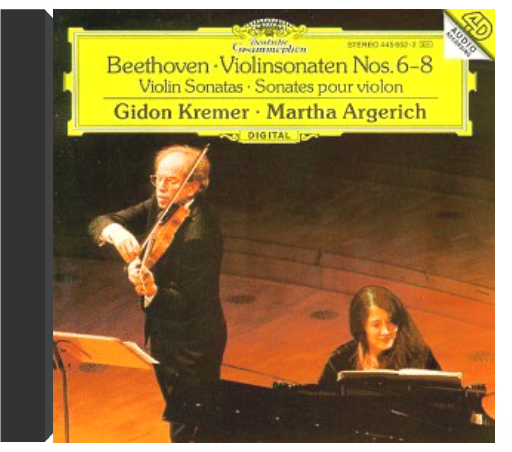 Beethoven: Violin Sonatas nos 6-8 / Kremer, ArgerichGidon Kremer, Martha Argerich Beethoven: Violin Sonatas nos 6-8 / Kremer, ArgerichGidon Kremer, Martha Argerich It takes two great musicians to do justice to Beethoven's duo Sonatas. Soloist plus accompanist doesn't work in this music, which makes equal technical and musical demands on both players—except in some of the earlier sonatas, where the piano has more work. With Gidon Kremer and Martha Argerich, we start out with the basic requirement and go on from there. Although these are studio recordings they have the fire and intensity of concerts, with wide dynamic and emotional range and gratifying attention to every musical detail. This is one of a series of three discs, one of the best sets of Beethoven's Violin Sonatas ever recorded. —Leslie Gerber 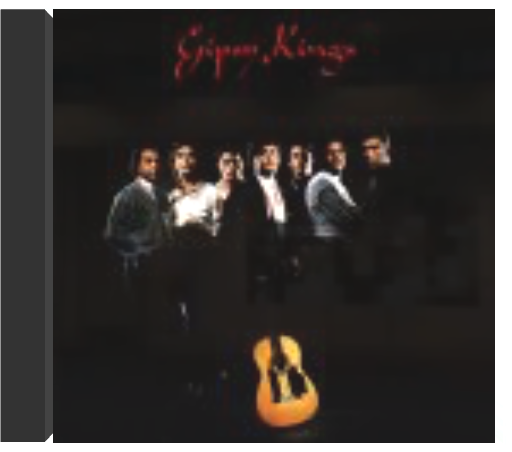 Gipsy KingsGipsy Kings Gipsy KingsGipsy Kings More than any other band, the Gipsy Kings are responsible for the renewed interest in gypsy music, and this is the album that broke them through to the international mainstream. Although their carefully crafted music is not "pure" gypsy, their impassioned performances create a window for the uninitiated into the deeper world of flamenco and other styles. If you're not a purist, the Gipsy Kings provide powerful, highly contagious, mostly acoustic music that may represent a new form of contemporary gypsy music for the masses; or you can view it as pure pop. This disc lays down their trademark mix of guitars, handclaps, and percussion over 12 varied tracks ranging from intense dance numbers to passionate love songs such as "Un Amor." Linking it all together are the throaty, emotional vocals, notably those of Nicolas Reyes, evoking the smoky campfires of his underprivileged brethren where this highly polished music originated. —Derek Rath 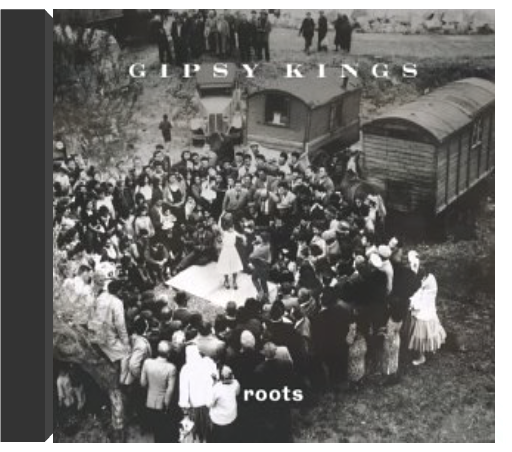 RootsGipsy Kings RootsGipsy Kings The Gipsy Kings are never going to have the kind of critical acclaim that Paco de Lucia has, but their popularization of poppy rumba flamenca among non-Spanish speakers is nothing to be ashamed of. Nonetheless, here on Roots, the octet turns back to the tradition while making their own imprint on it. Having the band record in an old farm house, producer Craig Street, it seems, simply told them to sit down to play their bittersweet songs. Without electric instruments or a drum set to clutter the mix, brisk acoustic guitars will sweep listeners up in the driving rhythms as lead guitarist Tonino Baliardo soars overhead, particularly on the instrumental songs. When Nicolas, Canut and Patchai Reyes take turns on lead vocals, Street adeptly captures the timbre and nuance of the singers' voices while also delicately balancing the guitar, hand percussion and bass. No pop songs or bombastic rock beats:here's one that purists cannot argue with. —Tad Hendrickson |
 Made with Delicious Library
Made with Delicious Library
